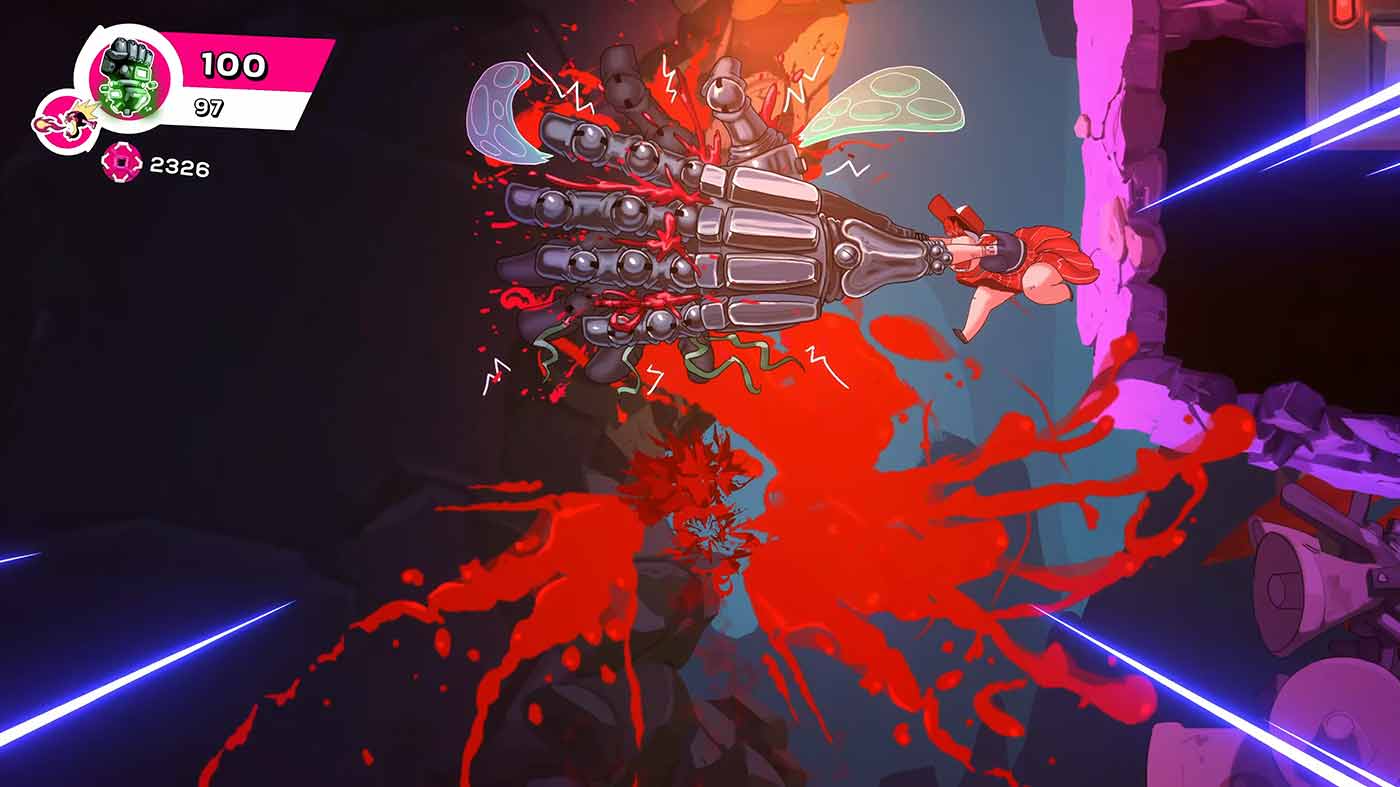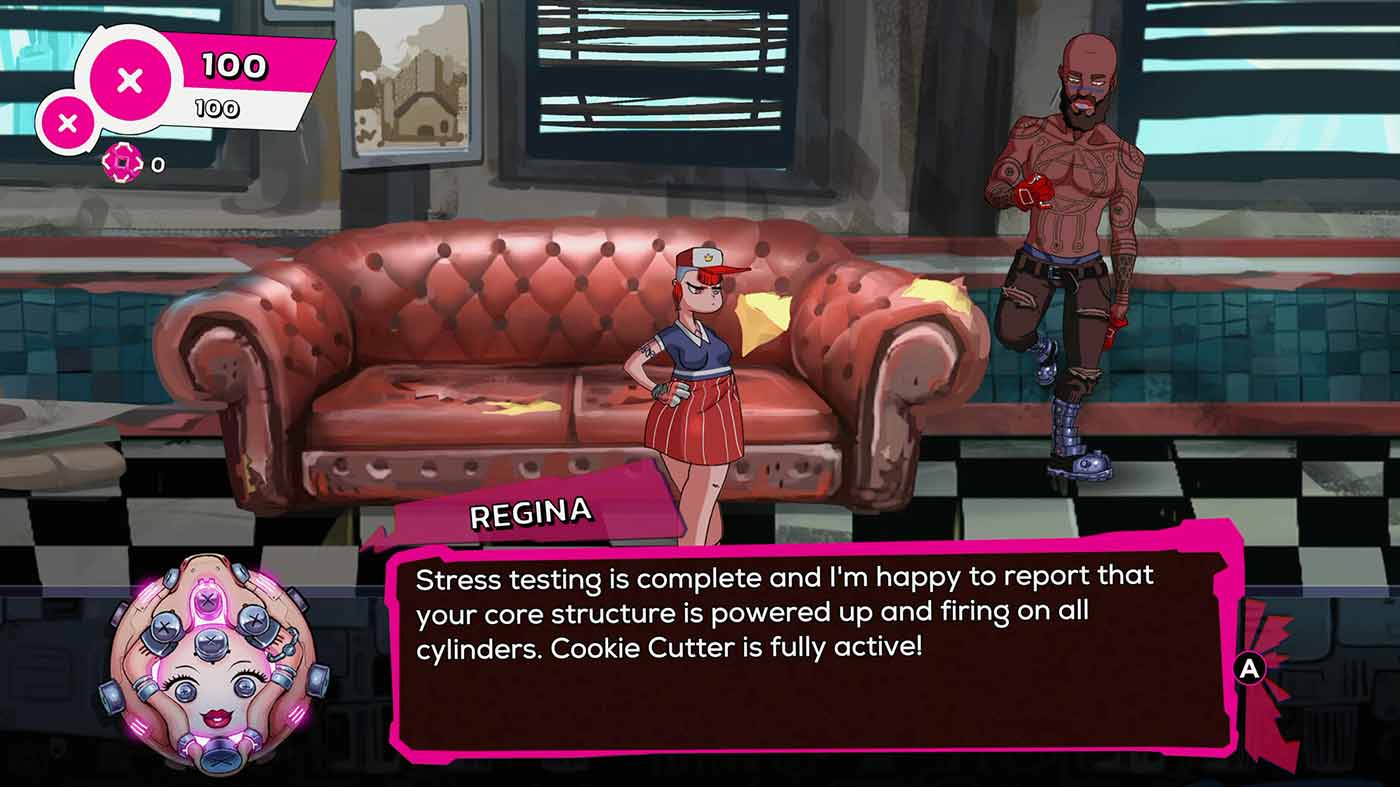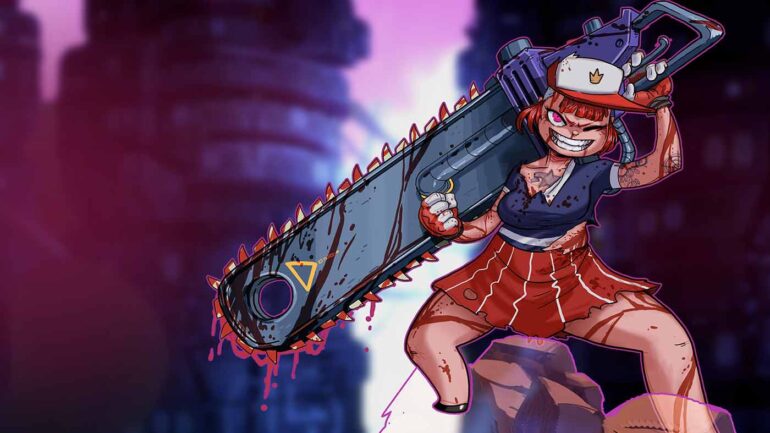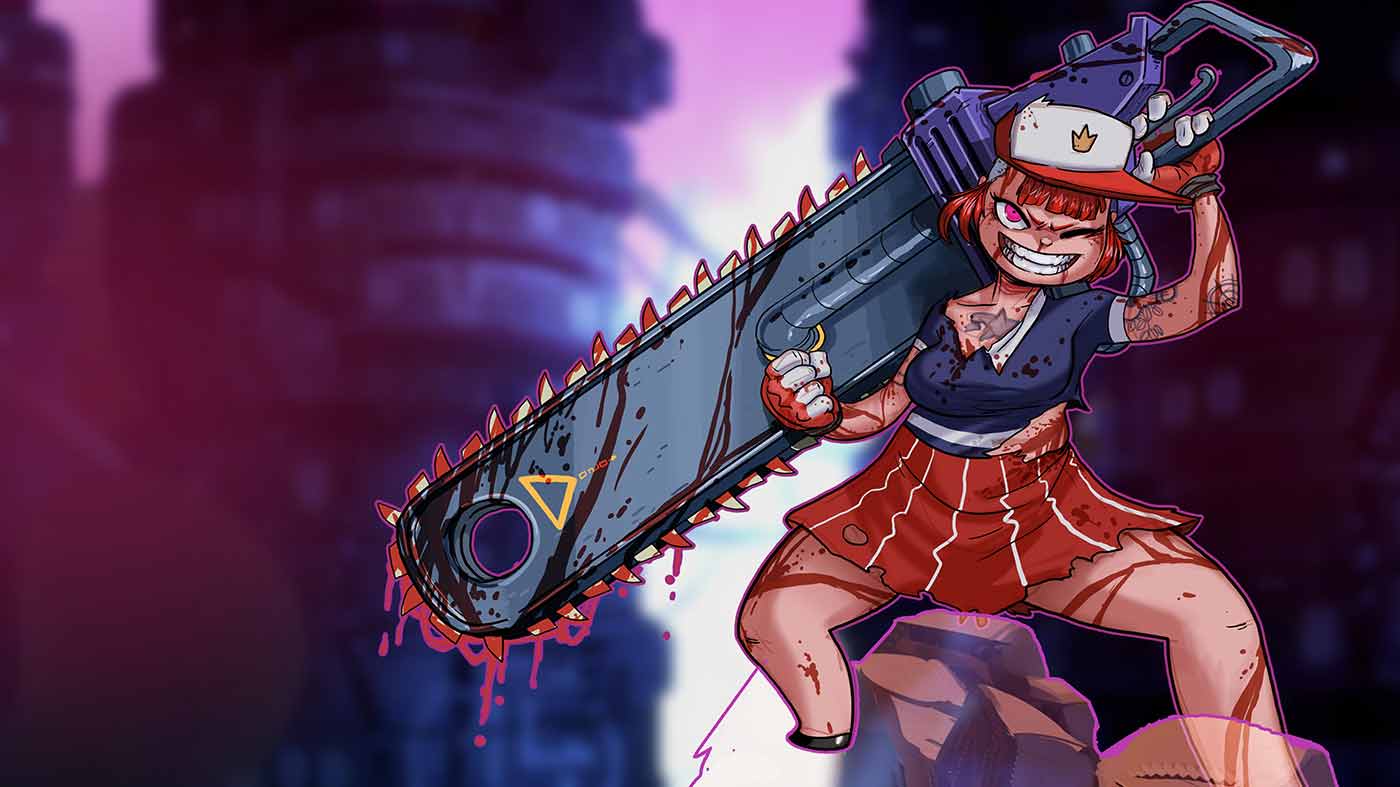Since the very first time I laid eyes on Cookie Cutter, I’ve known it was a game for me. Though I’m not one to jump on every “metroidvania” out there offering me a maze-like world to explore with a steadily-increasing toolbelt, slapping some gorgeous hand-drawn art, a story about a badass queer android and a healthy dose of hyperviolence onto that framework is certainly a way to hook me in.
Cookie Cutter stars Cherry, a “Denzel” (see: android) created by her scientist master as a companion in more ways than one, who finds herself ripped to pieces and left for dead before she’s eventually found by a mechanic named Raz. Learning that her creator has been kidnapped by a Marilyn Manson-coded creep named Salem Garbanzos, Cherry sets off on a mission of rescue and vengeance set against the backdrop of an admittedly-thin bit of worldbuilding about dystopian megacorporations and other sci-fi nonsense.
Aside from its visceral and revenge-fuelled setup, the most immediately striking thing about Cookie Cutter is absolutely its visual identity, which is a patchwork of cuttings from the cloths of Cartoon Network shows, turn-of-the-century flash games and 16/32-bit era video games albeit with a fantastic attention to detail, energetic animations and (often literal) buckets of gore. While I didn’t much care for the tale being told by the end of it all, the presentation is more than enough to latch onto while you make your way through. The game’s various environments feel quite “game-y” and don’t really make a lot of logical sense, but it hardly matters when they serve as a backdrop to Cherry’s wonderfully beautiful trail of carnage.
Cookie Cutter’s sense of humour is very much in keeping with the rest of its tone, so expect some pretty on-the-nose stuff like Cherry’s AI assistant being a robotic vulva named Regina or an eventual ally being a scissor-wielding emo by the name of Puanani. It’s all very grindhouse but also somewhat sincere and along with the cartoonish hyperviolence will no doubt appeal to folks in their 30s who grew up on Mindless Self Indulgence and KMFDM.

Interestingly, gameplay-wise the experience is a lot more, for lack of another term, cookie cutter. Which isn’t a bad thing by any stretch, and I actually rather appreciated the very familiar rhythm of standard metroidvania without any roguelike gimmicks or complex systems. You’ll explore various different themed areas, finding more and more ways to get around or bypass previously-blocked areas and generally just press forward in the hopes you’re heading towards something of importance. There are side objectives as well, though I never felt compelled to go out of my way to pursue them unless I was coming across them organically, which often happened anyway.
Combat is probably where the game shines most. Cherry’s ever-growing repertoire of moves is consistently satisfying and even her most basic attacks remain fun throughout as you juggle enemies both figuratively and literally – smashing them into walls, ceilings and environmental hazards for maximum insult. A novel health system where Cherry can self-repair at the cost of her VOID power, which is built up by attacking but also necessary for using more powerful abilities, is a great twist that makes fights a constant balancing act and really encourages you to fight well and conserve VOID so that those gruesome special attacks can be your reward.

There are frustrations, though. The game’s camera, controls and physics aren’t always polished to the level where fights feel completely fair, and because the map is so sprawling with somewhat-limited checkpoints and fast travel it can feel overly punishing to die and have to hoof it back or go looking for upgrades. The boss fights, while they contain some pretty fucking cool designs, aren’t overly inspired in mechanics either. I don’t think any of the game’s issues are egregious enough that they should steer anyone away from playing the game if the overall package speaks to you, though.




